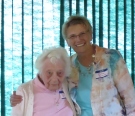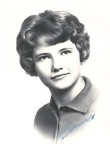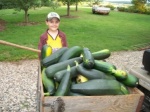 Taters Rule
Taters Rule
In my mother’s world, taters ruled. The wonderful, glorious, versatile potato. No meal was complete without them, be they boiled, mashed, baked, fried, shredded, riced, or made into soups, salads, and casseroles. When I was a kid, I took taters for granted. Potatoes were simply a part of life. I gave no thought what-so-ever to the amount of work involved in getting them from the field to table.
Like most farm families, we raised our own potatoes. Planting, cultivating, harvesting, and storing them were important and necessary tasks that helped carry us through the winter. Most people planted potatoes on Good Friday. I don’t know why, but assume it had something to do with the phase of the moon—the same reason the date of Easter varies from year to year. From Good Friday through harvest, the crop required a great deal of work. It began with poking ‘eyes’ in the ground on Good Friday, pulling weeds and picking off potato bugs (my least favorite task) throughout the summer, and digging them up in the fall. Even after harvest, the work wasn’t finished. We laid the newly dug potatoes out to dry and harden a couple of days before carrying them down the steps to the storage bins in the cellar.
Preparing them for the table was also a great deal of work. Mom, like most cooks in the ’50s, managed to wash, peel, and cook them to perfection without the help of food processors and microwaves. Whatever Mom decided to do with potatoes, the result was wonderful. Mashed to perfection, fried to a crispy brown, or simply boiled, her potato dishes were superb. Mom’s potato salad was always a hit at potlucks and family reunions. I still use her secret ingredient and my version of Gramma Lill’s Potato Salad continues to be a family favorite.
My personal favorite was riced potatoes. These were prepared in a potato ricer, which was a metal, sieve-like affair with handles. Mom held the ricer, filled with boiled potatoes, over each plate and squeezed the handles together. Streams of potatoes gushed out of the holes and looked like piles of rice on my plate. Scrumpious gravy poured on top created a piece of heaven. A few years ago, I was thrilled to find a potato ricer at a flea market and my grandchildren are amazed when they see piles of fluffy potatoes on their plates.
Potatoes continue to be America’s favorite vegetable. Every year we consume about 110 pounds of potatoes per person! Even with this popularity, few of the younger generation realize how much work goes into growing potatoes. Modern cooks can create all sorts of potato dishes by simply using a dried, canned, or frozen version and heating it in the microwave. I’m glad I grew up in an earlier time and experienced the wonderful potato dishes created in my mom’s kitchen from spuds grown on our farm. I count the humble potato among my most treasured memories. In my world, taters still rule.



 The day began with a traditional Fourth of July parade in the sleepy seaside town of Sausalito. We watched from the comfort of a gorgeous street-side park as bands, cyclists, floats, monkeys, and magicians performed with gusto on the street beside the deep blue water of the bay. Later, we strolled along brick streets and enjoyed a touristy area filled with hundreds of people leisurely enjoying the day.
The day began with a traditional Fourth of July parade in the sleepy seaside town of Sausalito. We watched from the comfort of a gorgeous street-side park as bands, cyclists, floats, monkeys, and magicians performed with gusto on the street beside the deep blue water of the bay. Later, we strolled along brick streets and enjoyed a touristy area filled with hundreds of people leisurely enjoying the day. After taking a ferry across the bay to The Pier, we caught up with our host family (my son-in-law’s aunt and uncle) to enjoy an afternoon on a grassy knoll surrounded by shops to explore. The crowd grew throughout the day, but it remained calm and everyone was in a festive mood. I had a surreal feeling of being among thousands of friends. Sitting on blankets spread upon the grass, we ate a homemade picnic supper and (sort of) enjoyed a concert. (I say ‘sort of’ because rock music is not my thing, but people watching was great fun.)
After taking a ferry across the bay to The Pier, we caught up with our host family (my son-in-law’s aunt and uncle) to enjoy an afternoon on a grassy knoll surrounded by shops to explore. The crowd grew throughout the day, but it remained calm and everyone was in a festive mood. I had a surreal feeling of being among thousands of friends. Sitting on blankets spread upon the grass, we ate a homemade picnic supper and (sort of) enjoyed a concert. (I say ‘sort of’ because rock music is not my thing, but people watching was great fun.) One year ago, on November 26, 2012, I received a letter that rocked my world. The return address was unfamiliar and I was stunned after reading the contents. The writer, someone named Berneice Quinn, contacted me because she had reason to believe her father and my father were one in the same. In other words, she claimed to be my half-sister!
One year ago, on November 26, 2012, I received a letter that rocked my world. The return address was unfamiliar and I was stunned after reading the contents. The writer, someone named Berneice Quinn, contacted me because she had reason to believe her father and my father were one in the same. In other words, she claimed to be my half-sister!
 Berneice
Berneice





